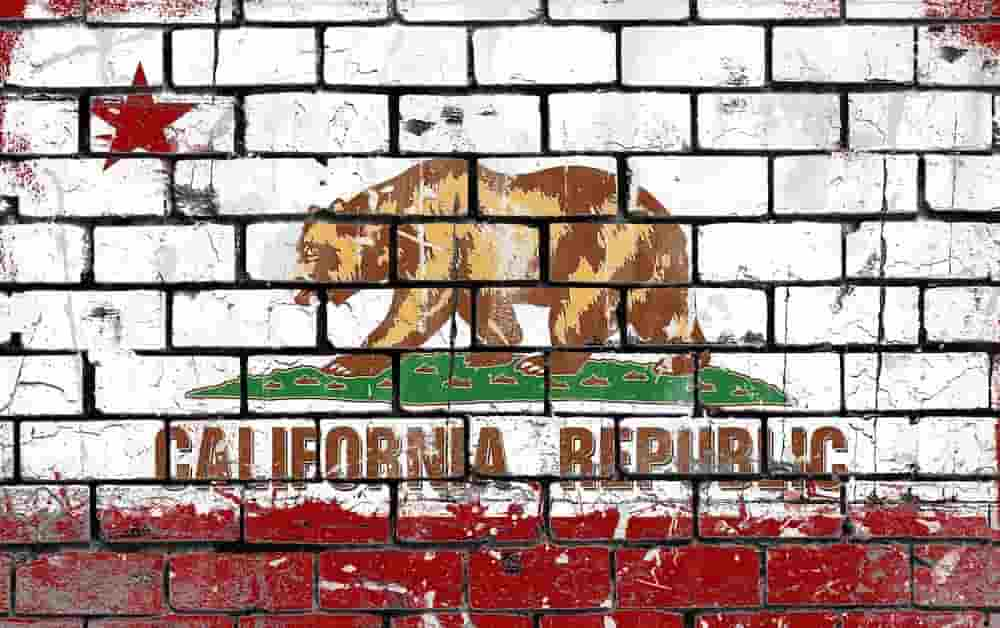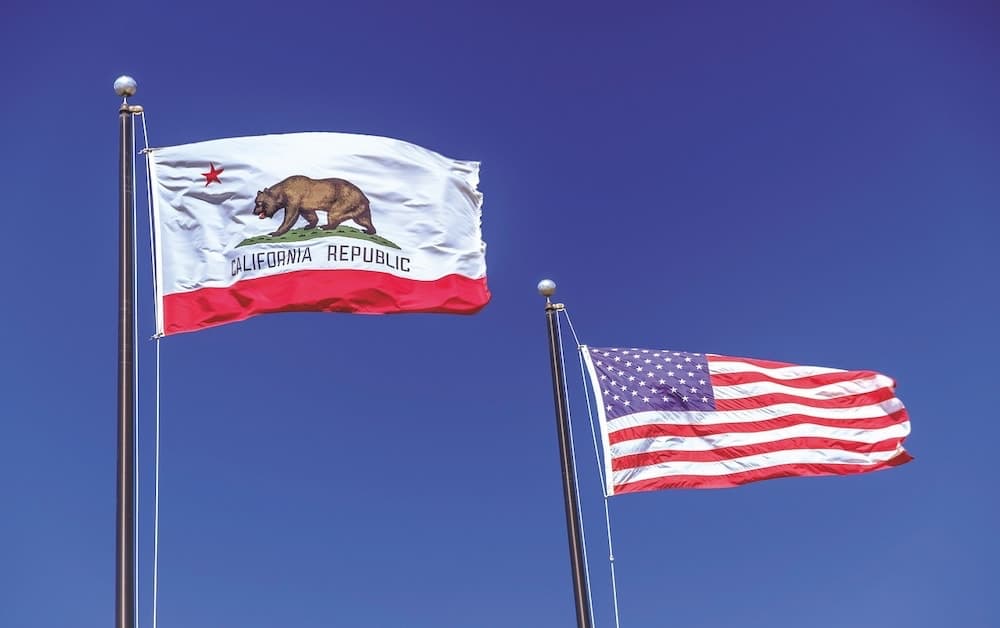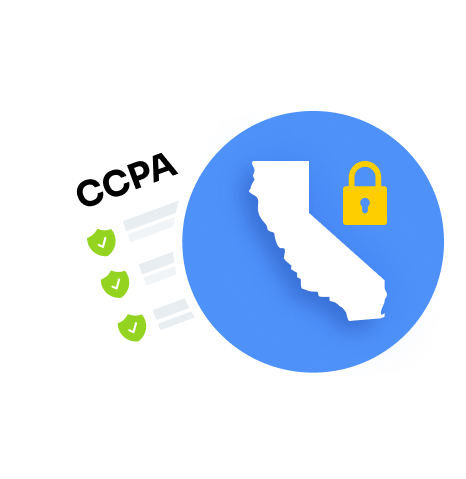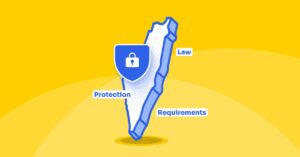Introduction
The California Consumer Privacy Act (CCPA) has significantly reshaped how businesses handle consumer data. With stringent regulations surrounding the collection, use, and protection of personal information, it has become crucial for businesses, especially those handling the data of California residents, to comply with this law. This article explores the essential rules businesses must know about CCPA requirements, including the rights it grants to consumers and the steps companies must take to achieve compliance.
The California Consumer Privacy Act (CCPA)
The California Consumer Privacy Act (CCPA) is a law at the state level that aims to improve privacy rights and data protection for residents of California. It gives consumers control over their personal information, allowing them to know what data is being collected, request deletion of their data, and opt-out of having their data sold. The CCPA applies to for-profit businesses that meet certain thresholds, such as having an annual revenue of over $25 million or collecting data on more than 50,000 consumers annually.
Businesses covered by the CCPA must disclose their data practices and provide a clear and conspicuous way for consumers to exercise their rights. The CCPA was later amended by the California Privacy Rights Act (CPRA), which expanded its provisions and created the California Privacy Protection Agency (CPPA) to enforce the law.
Effective Date of the CCPA
The California Consumer Privacy Act (CCPA) officially took effect on January 1, 2020, marking a significant shift in data privacy regulations for businesses handling consumer data. However, enforcement by the California Attorney General’s office began on July 1, 2020, giving businesses a six-month window to align their practices with the new requirements. The landscape of consumer rights was further expanded with the passage of the California Privacy Rights Act (CPRA) in November 2020. This amendment introduced additional provisions and enhanced consumer rights, with the CPRA taking effect on January 1, 2023. Understanding these key dates is crucial for businesses to comply with evolving data privacy laws.
Understanding Personal Information Under the CCPA
The CCPA defines personal information broadly, encompassing any information that identifies, relates to, or could be linked to a particular consumer. This includes basic identifiers such as names and addresses and more specific details like driver’s license numbers, financial account information, health insurance information, and biometric data.
Personal information businesses collect may also include more sensitive categories such as race, religion, sexual orientation, and geolocation data. Importantly, sensitive personal information under the CCPA is given special protection, and businesses must take additional care in handling this type of data.
Sensitive Personal Information
Sensitive personal information under the CCPA is a special personal data category requiring heightened protection due to its nature. This includes information that reveals racial or ethnic origin, political opinions, religious or philosophical beliefs, trade union membership, genetic or biometric data, health or medical information, and details about an individual’s sex life or sexual orientation. Businesses that collect sensitive personal information must provide explicit notice to consumers and obtain their consent before collecting, using, or disclosing such data. This ensures that consumers are fully aware of and agree to handling their most sensitive information, reinforcing the CCPA’s commitment to protecting consumer privacy.

Consumer Rights Under the CCPA
One of the central elements of the CCPA is the set of rights it grants to consumers. California residents have the right to know what personal information a business collects about them, the purposes for which it is collected, and whether their information is shared or sold to third parties. Consumers also have the right to access, delete, and opt-out of selling their personal information.
Consumers have the right to limit the use and disclosure of sensitive personal information collected about them, particularly regarding precise geolocation data, as part of their privacy protections.
These rights apply not only to individual consumers but also to households, making the scope of the law broad. To comply with these rights, businesses must develop processes to respond to consumer requests within 45 days, with the option for a 45-day extension if necessary.
Obligations for Businesses Collecting Personal Information
Businesses that collect personal information from California residents must meet several obligations under the CCPA. First, consumers must be informed at or before the point of data collection about the categories of personal information being collected and the purposes for which it will be used.
Additionally, businesses must maintain a data inventory that tracks the information they collect, use, and share. This helps ensure transparency and compliance with the CCPA’s regulations. Companies must also implement security measures to protect consumer data and prevent unauthorized access, as the CCPA emphasizes reasonable security measures to safeguard data.
Data Minimization and Purpose Limitation
The CCPA mandates that businesses adhere to principles of data minimization and purpose limitation. This means that companies should only collect and process the personal information necessary to achieve the specific purposes for which it was collected. To comply, businesses should:
Clearly identify and document the purposes for which personal information is collected.
Limit the collection of personal information to what is strictly necessary for those purposes.
Avoid processing personal information that is not relevant to the intended purpose.
Regularly review and update data collection and processing practices to ensure they remain necessary and proportionate.
By following these guidelines, businesses can minimize the risk of over-collecting data and ensure they use personal information responsibly and transparently.
How Businesses Can Achieve CCPA Compliance
Achieving CCPA compliance requires businesses to take several proactive steps. They must create and maintain a privacy policy that outlines their data collection practices, consumer rights, and the methods for exercising those rights. This policy should be posted on the company’s website homepage and be easily accessible.
Companies must also implement systems to verify consumer requests for data access, deletion, or opt-out. Ensuring compliance involves regularly auditing data practices and staying updated on changes to the law, such as the amendments brought by the California Privacy Rights Act (CPRA).
CCPA Compliance Checklist
To navigate the complexities of CCPA compliance, businesses should follow this comprehensive checklist:
Determine Applicability: Assess whether the CCPA applies to your business based on revenue, data collection, and data sales criteria.
Update Privacy Policy: Ensure your privacy policy includes all required data collection, use, and consumer rights disclosures.
Notice at Collection: Provide clear notice to consumers at or before the point of data collection, detailing the categories of personal information collected and the purposes for its use.
Consumer Request Process: Establish a robust process for responding to consumer requests for data access, deletion, and opt-out within the required timeframes.
Data Minimization: Implement practices to collect only the personal information necessary for the specified purposes.
Opt-Out Rights: Provide consumers with a straightforward way to opt-out of the sale of their personal information, such as a “Do Not Sell My Personal Information” link.
Right to Delete: Honor consumer requests to delete their personal information, ensuring all relevant data is removed from your systems.
Security Measures: Implement reasonable security measures to protect personal information from unauthorized access and breaches.
Regular Audits: Conduct regular audits and risk assessments to ensure ongoing compliance with CCPA requirements.
Employee Training: Train employees on CCPA compliance and data protection practices to ensure they understand their roles in maintaining data privacy.
By following this checklist, businesses can systematically address the key components of CCPA compliance and effectively protect consumer data.

CCPA and Data Collection Practices
Under the CCPA, businesses are required to disclose their data collection practices clearly. They must notify consumers about the categories of personal data being collected, the purpose of collection, and whether the data will be sold or shared. This notice must be provided at or before the point of collection, making transparency a key aspect of CCPA compliance.
Companies that engage in cross-context behavioral advertising, where data is used to target consumers based on browsing history, must also comply with the CCPA’s opt-out requirements. Consumers must be given a straightforward way to opt-out of data collection and selling of personal information.
Data Breach Prevention and Reasonable Security Measures
Data breaches can have significant financial and reputational consequences for businesses. The CCPA mandates that companies implement reasonable security procedures and practices to safeguard consumer data from unauthorized access, use, or disclosure.
In the event of a data breach, companies may face civil penalties, especially if it is found that they failed to implement reasonable security measures. To comply with CCPA regulations, businesses must invest in strong cybersecurity frameworks, regular audits, and employee training to minimize the risk of data breaches.
Handling Consumer Opt-Out Requests
One of the key consumer rights under the CCPA is the right to opt-out of the sale of their personal information. Businesses must prominently display a link on their website’s homepage labeled “Do Not Sell My Personal Information,” allowing consumers to easily opt-out.
Businesses must also respect opt-out requests from consumers, refraining from selling their data once they have chosen to opt-out. Additionally, companies cannot discriminate against consumers who exercise their CCPA rights by offering lower quality services or charging higher prices.
CCPA’s Impact on Employment-Related Personal Information
The CCPA has specific provisions regarding the handling of employment-related personal information, including data collected from employees, job applicants, and contractors. While the law offers certain exemptions for this category of information, businesses must still comply with CCPA requirements regarding data security and privacy disclosures.
Employers must inform employees about the categories of personal information being collected and the purposes for its use. They must implement reasonable security measures to safeguard this data from unauthorized access or disclosure.
Selling Personal Information Under the CCPA
Under the CCPA, selling personal information is defined as disclosing or making a consumer’s data available to a third party for monetary or other valuable consideration. Companies that engage in this practice must disclose it to consumers and allow them to opt-out.
Businesses not selling personal information must explicitly state this in their privacy policies. Additionally, they must ensure that any third parties with whom they share data comply with the CCPA and refrain from reselling the data without proper consumer consent.
The Role of the California Privacy Protection Agency (CPPA)
The California Privacy Protection Agency (CPPA) is the regulatory body responsible for enforcing the CCPA and its amendments. The CPPA has the authority to issue fines, investigate violations, and ensure that businesses meet their obligations under the law.
Businesses must cooperate with the CPPA during investigations and demonstrate their compliance efforts. The CPPA can issue fines of up to $7,500 per intentional violation and $2,500 per unintentional violation, making it crucial for businesses to prioritize data privacy compliance.

Businesses That Must Comply with the CCPA
The California Consumer Privacy Act (CCPA) applies to for-profit businesses that collect personal information from California residents and meet one or more of the following criteria: annual gross revenue of over $25 million, annually buy, receive, or share the personal data of 50,000 or more consumers, or derive 50% or more of their revenue from selling consumers’ data.
Even businesses outside California must comply if they meet these thresholds and collect data from California residents. Local government records and non-profit organizations are exempt from CCPA regulations.
Types of Businesses Exempt from the CCPA
While the CCPA applies to many businesses, certain types are exempt from its requirements. These include:
Non-profit Organizations: Entities not operating for profit are not subject to the CCPA.
Government Agencies: Public sector organizations are exempt from CCPA regulations.
Revenue Threshold: Businesses with annual gross revenues under $25 million are not required to comply.
Data Collection Threshold: Companies that do not collect or process personal information of 50,000 or more consumers, households, or devices annually are exempt.
Revenue from Data Sales: Businesses that do not derive 50% or more of their annual revenue from selling consumers’ personal information are not covered by the CCPA.
It’s important to note that even if a business is exempt from the CCPA, it may still need to comply with other data protection laws, such as the General Data Protection Regulation (GDPR) or the Health Insurance Portability and Accountability Act (HIPAA). Understanding these exemptions helps businesses determine their obligations under various data privacy regulations.
The Importance of Data Security and Breach Notifications
Under the CCPA, businesses must implement reasonable security measures to protect personal data and prevent unauthorized access, breaches, and misuse. If a data breach occurs, and the business is found to have failed to implement adequate security measures, it can face fines and legal claims from affected consumers.
Moreover, companies must notify consumers in case of a data breach that compromises their personal information. Failure to do so promptly can lead to additional penalties and loss of consumer trust.
Financial Incentives and Consumer Data
The CCPA allows businesses to offer financial incentives to consumers in exchange for collecting, selling, or retaining their personal data. However, these incentives must be reasonable and not discriminate against consumers who opt-out of their data sale.
Businesses must disclose any financial incentive programs, including how consumers can opt-in and their right to withdraw consent. These incentives must also comply with the Fair Credit Reporting Act and other relevant laws.
Addressing Consumer Requests for Data Access
Under the CCPA, consumers have the right to request access to the personal information a business holds about them. This includes information collected over the past 12 months, its sources, and the business purposes for which it is used.
Businesses must provide this information within 45 days of receiving a verifiable consumer request. To facilitate this process, companies can offer multiple methods for submitting requests, such as a website form, toll-free phone number, or email. Keeping a data inventory is crucial for businesses to respond accurately and efficiently.
The Role of the California Attorney General in CCPA Enforcement
While the California Privacy Protection Agency handles most enforcement actions, the California Attorney General also significantly ensures compliance with the CCPA. The Attorney General has the authority to bring civil actions against businesses that violate the CCPA and impose fines for non-compliance.
The Attorney General’s office also guides CCPA regulations and updates, helping businesses understand their legal obligations. Companies must follow this guidance to avoid legal issues and ensure ongoing compliance.

How to Opt-Out of Data Sales
One of the most important consumer rights under the CCPA is the ability to opt-out of the sale of personal information. Businesses must provide an easy-to-find opt-out link on their website and allow consumers to submit opt-out requests at any time.
Once a consumer has opted out, businesses cannot sell their data unless they explicitly consent to reauthorize the sale. Additionally, businesses must ensure that third parties with whom they share data respect consumer opt-out requests.
Impact of the CCPA on Future Marketing Efforts
The CCPA directly impacts future marketing efforts, especially for businesses that rely heavily on consumer data for targeted advertising. Companies must now disclose their data collection practices to consumers and provide options to opt-out of behavioral advertising.
Marketers must ensure that any data used for future campaigns complies with CCPA regulations. This may require revising privacy practices, updating data access procedures, and developing strategies to manage sensitive data carefully.
Ensuring Ongoing Compliance with CCPA Requirements
To ensure ongoing compliance with the CCPA, businesses must regularly audit their data practices and stay updated on regulatory changes. This includes reviewing their privacy policies, consumer rights procedures, and data security measures to align with CCPA guidelines.
Additionally, companies must train their staff on privacy practices and establish internal controls to monitor compliance efforts. As the regulatory landscape continues to evolve with laws like the General Data Protection Regulation (GDPR) and the California Privacy Rights Act, maintaining compliance will be an ongoing process for businesses that handle personal data.
Conclusion
In conclusion, the California Consumer Privacy Act (CCPA) sets a high bar for data privacy and protection. Businesses collecting, storing, or processing personal information from California residents must prioritize compliance with this complex and evolving law to avoid legal penalties and protect consumer trust. By understanding the CCPA’s requirements and implementing strong data protection practices, companies can safeguard consumer privacy rights and thrive in an increasingly regulated environment.




